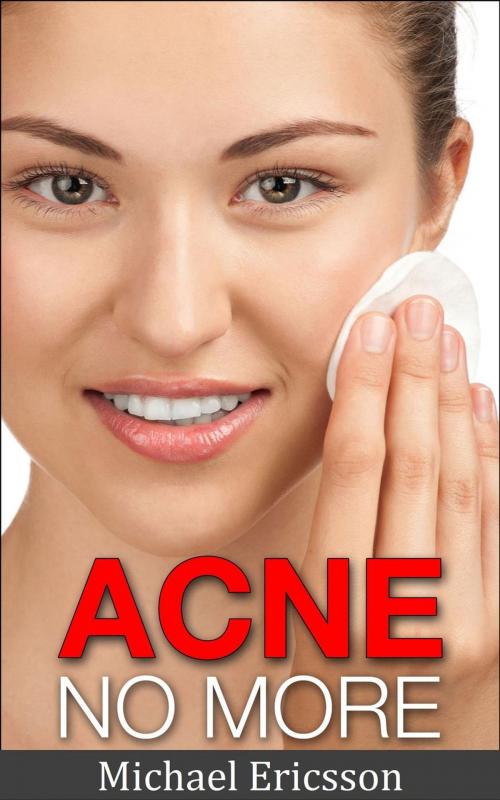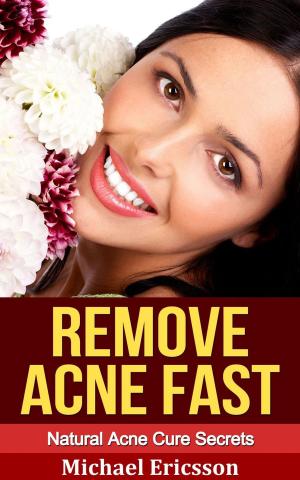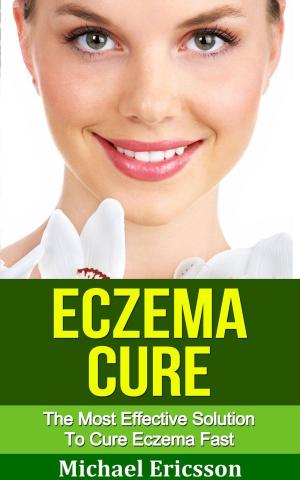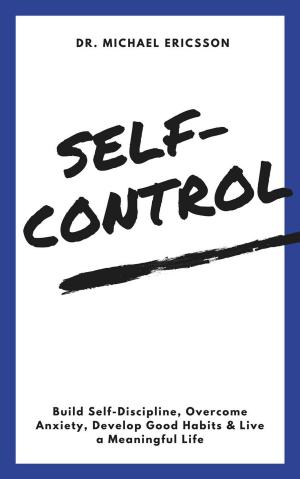| Author: | Dr. Michael Ericsson | ISBN: | 9781513047355 |
| Publisher: | Dr. Michael Ericsson | Publication: | May 27, 2015 |
| Imprint: | Language: | English |
| Author: | Dr. Michael Ericsson |
| ISBN: | 9781513047355 |
| Publisher: | Dr. Michael Ericsson |
| Publication: | May 27, 2015 |
| Imprint: | |
| Language: | English |
This book contains proven steps and strategies on how to keep acne completely under control. This book lets you know about the facts behind acne myths, the skincare regimen you should follow to prevent acne, and the food you should or should not eat to avoid breakouts. Furthermore, you will learn about medical, laser and surgical modalities you can undergo for an acne-free life.
Getting to Know Acne
What is acne?
Acne, medically termed as Acne vulgaris, is a skin condition that appears when hormonal activity in the body results to overstimulation of oil glands, causing overproduction of oil. This oil builds up below the skin and can clog or block skin pores, sometimes even infecting the pores with bacteria. Most people call acne as pimples or zits. Pimples, with the colloquial term zits, appear when skin pores are clogged with pieces of shedding dead cells held together by sebum. Pimples can be considered as one of the direct results of acne, but it can appear without the influence of hormonal activities associated with acne.
The most common body areas where acne can appear are the face, neck, chest, shoulders, back and upper arms. Acne can be very irritating and embarrassing. Some get it during their adolescence while some on their adulthood. As time goes by, acne can be severe and can leave permanent scars if preventive measures will not be performed immediately.
What are the truths behind acne myths? Since acne is a widespread condition that chooses no gender, race, age and culture, there are various concepts that have been formulated through the years in hopes to explain acne’s nature, causes or remedies. Here are the most common acne myths, and get to know the facts behind them.
Myth 1: "Wash and scrub more often to prevent acne!" Washing your face very often only causes your skin to dry out and get irritated. This will worsen acne.
Myth 2: "Oh no, acne!" "No, I’m just stressed at work, that's why." Stress does not directly cause acne, but it can aggravate it. Stress produces a hormone named cortisol, which causes further inflammation and irritation. Some medicines for stress even have acne as a side effect.
Myth 3: "Pop them!" You must avoid popping pimples. It only causes the bacteria inside them to spread out to other areas of your skin, thus producing more pimples. It also pushes bacteria deeper into the pore, worsening the infection.
Myth 4: "Tan your skin, stay under the sun the whole day!" Staying under the sun for too long does not prevent acne. In fact it irritates, damages, and dries your skin, aggravating your acne. You might as well suffer from sunburn afterwards.
This book contains proven steps and strategies on how to keep acne completely under control. This book lets you know about the facts behind acne myths, the skincare regimen you should follow to prevent acne, and the food you should or should not eat to avoid breakouts. Furthermore, you will learn about medical, laser and surgical modalities you can undergo for an acne-free life.
Getting to Know Acne
What is acne?
Acne, medically termed as Acne vulgaris, is a skin condition that appears when hormonal activity in the body results to overstimulation of oil glands, causing overproduction of oil. This oil builds up below the skin and can clog or block skin pores, sometimes even infecting the pores with bacteria. Most people call acne as pimples or zits. Pimples, with the colloquial term zits, appear when skin pores are clogged with pieces of shedding dead cells held together by sebum. Pimples can be considered as one of the direct results of acne, but it can appear without the influence of hormonal activities associated with acne.
The most common body areas where acne can appear are the face, neck, chest, shoulders, back and upper arms. Acne can be very irritating and embarrassing. Some get it during their adolescence while some on their adulthood. As time goes by, acne can be severe and can leave permanent scars if preventive measures will not be performed immediately.
What are the truths behind acne myths? Since acne is a widespread condition that chooses no gender, race, age and culture, there are various concepts that have been formulated through the years in hopes to explain acne’s nature, causes or remedies. Here are the most common acne myths, and get to know the facts behind them.
Myth 1: "Wash and scrub more often to prevent acne!" Washing your face very often only causes your skin to dry out and get irritated. This will worsen acne.
Myth 2: "Oh no, acne!" "No, I’m just stressed at work, that's why." Stress does not directly cause acne, but it can aggravate it. Stress produces a hormone named cortisol, which causes further inflammation and irritation. Some medicines for stress even have acne as a side effect.
Myth 3: "Pop them!" You must avoid popping pimples. It only causes the bacteria inside them to spread out to other areas of your skin, thus producing more pimples. It also pushes bacteria deeper into the pore, worsening the infection.
Myth 4: "Tan your skin, stay under the sun the whole day!" Staying under the sun for too long does not prevent acne. In fact it irritates, damages, and dries your skin, aggravating your acne. You might as well suffer from sunburn afterwards.















